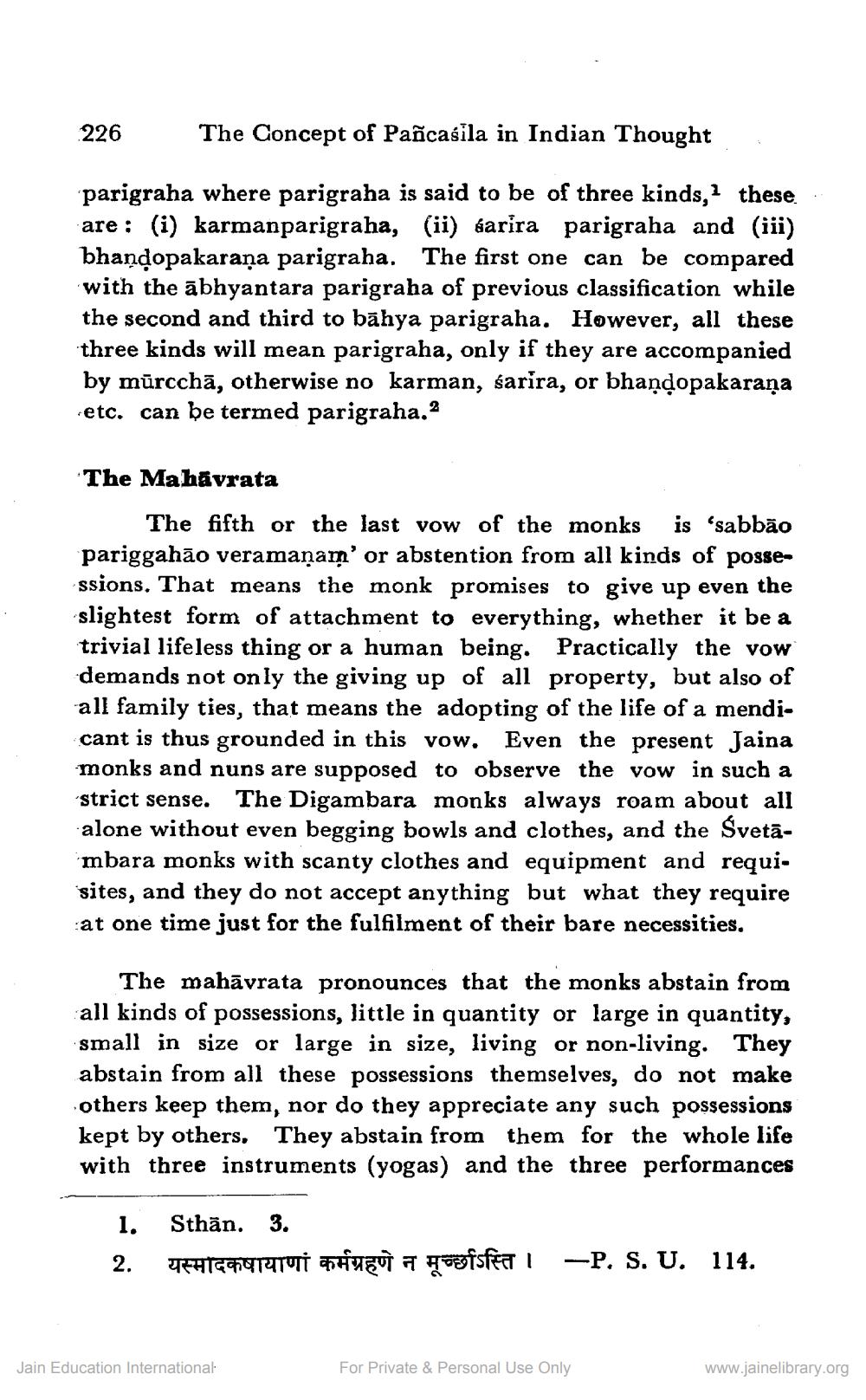________________
226
The Concept of Pañcasila in Indian Thoughts
parigraha where parigraha is said to be of three kinds, 2 these are : (i) karmanparigraha, (ii) sarira parigraha and (iii) bhandopakaraņa parigraha. The first one can be compared with the ābhyantara parigraha of previous classification while the second and third to bāhya parigraha. However, all these three kinds will mean parigraha, only if they are accompanied by mūrcchā, otherwise no karman, sarira, or bhandopakarana etc. can be termed parigraha.2
The Mahāvrata
The fifth or the last vow of the monks is ‘sabbão pariggahāo veramaṇam' or abstention from all kinds of possessions. That means the monk promises to give up even the slightest form of attachment to everything, whether it be a trivial lifeless thing or a human being. Practically the vow demands not only the giving up of all property, but also of all family ties, that means the adopting of the life of a mendicant is thus grounded in this vow. Even the present Jaina monks and nuns are supposed to observe the vow in such a strict sense. The Digambara monks always roam about all alone without even begging bowls and clothes, and the Svetāmbara monks with scanty clothes and equipment and requisites, and they do not accept anything but what they require at one time just for the fulfilment of their bare necessities.
The mahāvrata pronounces that the monks abstain from all kinds of possessions, little in quantity or large in quantity, small in size or large in size, living or non-living. They abstain from all these possessions themselves, do not make others keep them, nor do they appreciate any such possessions kept by others. They abstain from them for the whole life with three instruments (yogas) and the three performances
1. 2.
Sthần. 3. HTG9TATTİ 4 HUEUT 7 Fosfsfet i
P. S. U. 114.
Jain Education International
For Private & Personal Use Only
www.jainelibrary.org




